by Martin Green
If there is one complicated element that has been in a whirlwind (pun intended) of developments, it has been the tourbillon. Not only in a technical sense, but also in our perception.
In the 1990s a tourbillon was a most coveted element, fairly rare and often made by one of the esteemed, prestigious, old watchmaking houses. But as its popularity increased in the age of the Mechanical Renaissance, slowly but steadily almost all the haute horlogerie brands and many mid-level ones as well added at least one tourbillon to their collections.
Today you cannot call a tourbillon a rare element in haute horlogerie anymore, as a casual stroll (is that even possible?) through Baselworld confirms.
The tourbillon scene has expanded, and now there are even different categories of tourbillon that extend beyond being “just” a tourbillon (with a fixed bridge) or a flying tourbillon (with no bridge on top). Various brands now offer multi-axis tourbillons and even watches that incorporate two or more tourbillons in a single movement (and love to make each of them multi-axis as well).
In terms of perspective, this has greatly changed the tourbillon scene, pushing the prices of these watches to unprecedented heights. But there is also a counter movement. As the popularity of this element soars, so does demand.
Therefore, bringing the price of the tourbillon down allows more people to afford it. This way many more people may (and probably will) consider adding one to their collections.
Chinese watchmakers most certainly capitalized on this with their tourbillon movements, which are often a bit crude, but fully functional.
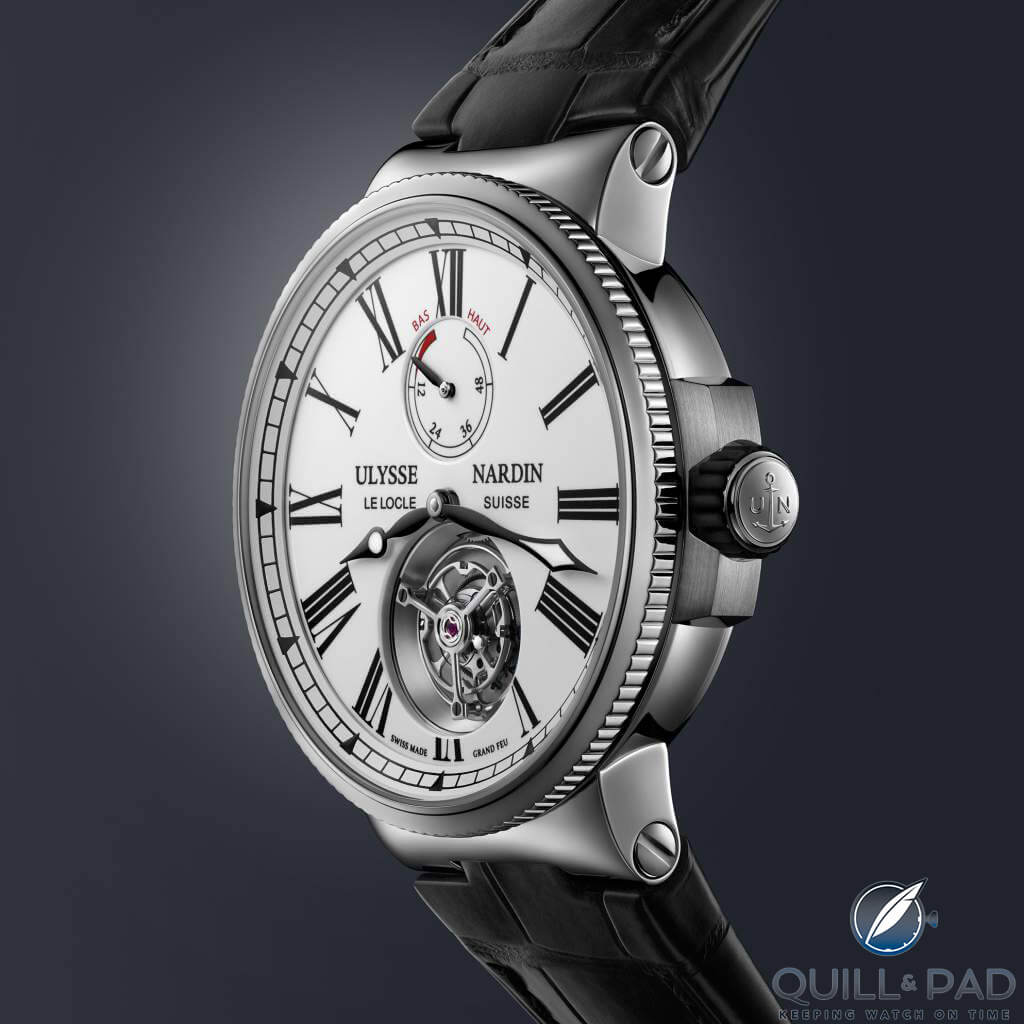
Ulysse Nardin Marine Tourbillon Enamel
The Swiss have a slightly different approach because they must walk a tightrope: bring the price of tourbillons down, but not one’s entire brand image with it.
Especially over the last few years, watchmakers have succeeded in this seemingly impossible task in a nearly unprecedented way. While tourbillons are still fairly expensive, you don’t have to spend $100,000 anymore, as many brands now have great offerings for even a third of that amount.
In fact, while we may consider them “entry-level” or tourbillons, a few have very enticing qualities that make even those who can afford more expensive tourbillons think twice.
Here are a couple of interesting tourbillons that tick all the boxes for your delectation.
Ulysse Nardin Marine Tourbillon
Ulysse Nardin marked its first time exhibiting at the 2017 SIHH in Geneva with the launch of the Marine Tourbillon. For a “mere” $28,000, you get a watch that oozes Ulysse Nardin’s tradition and craftsmanship fitted with a manufacture movement.
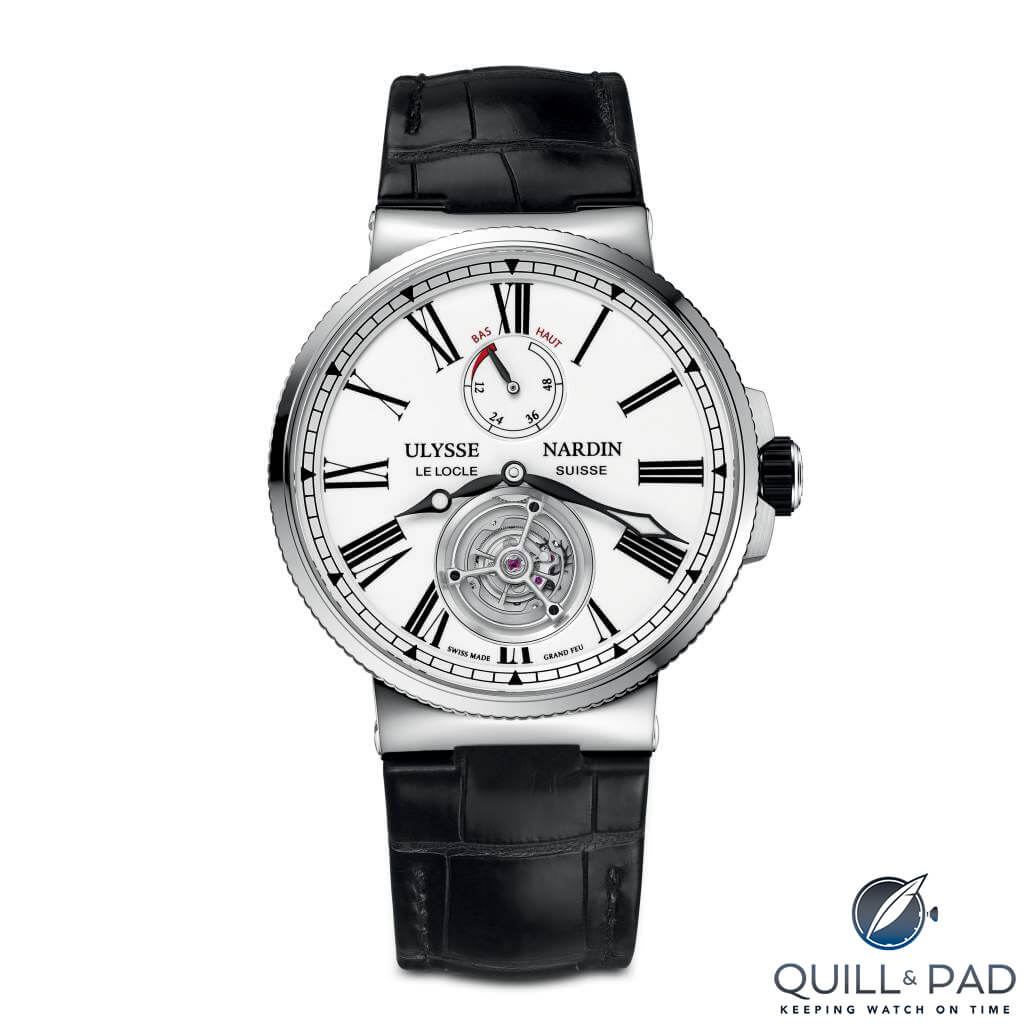
Ulysse Nardin Marine Tourbillon Enamel
Caliber UN-128 offers quite a bit with its flying tourbillon featuring the brand’s proprietary silicon spring and escapement technology. As if that is not enough, Ulysse Nardin tops it off with a close-to-eternal, oven-fired enamel dial.
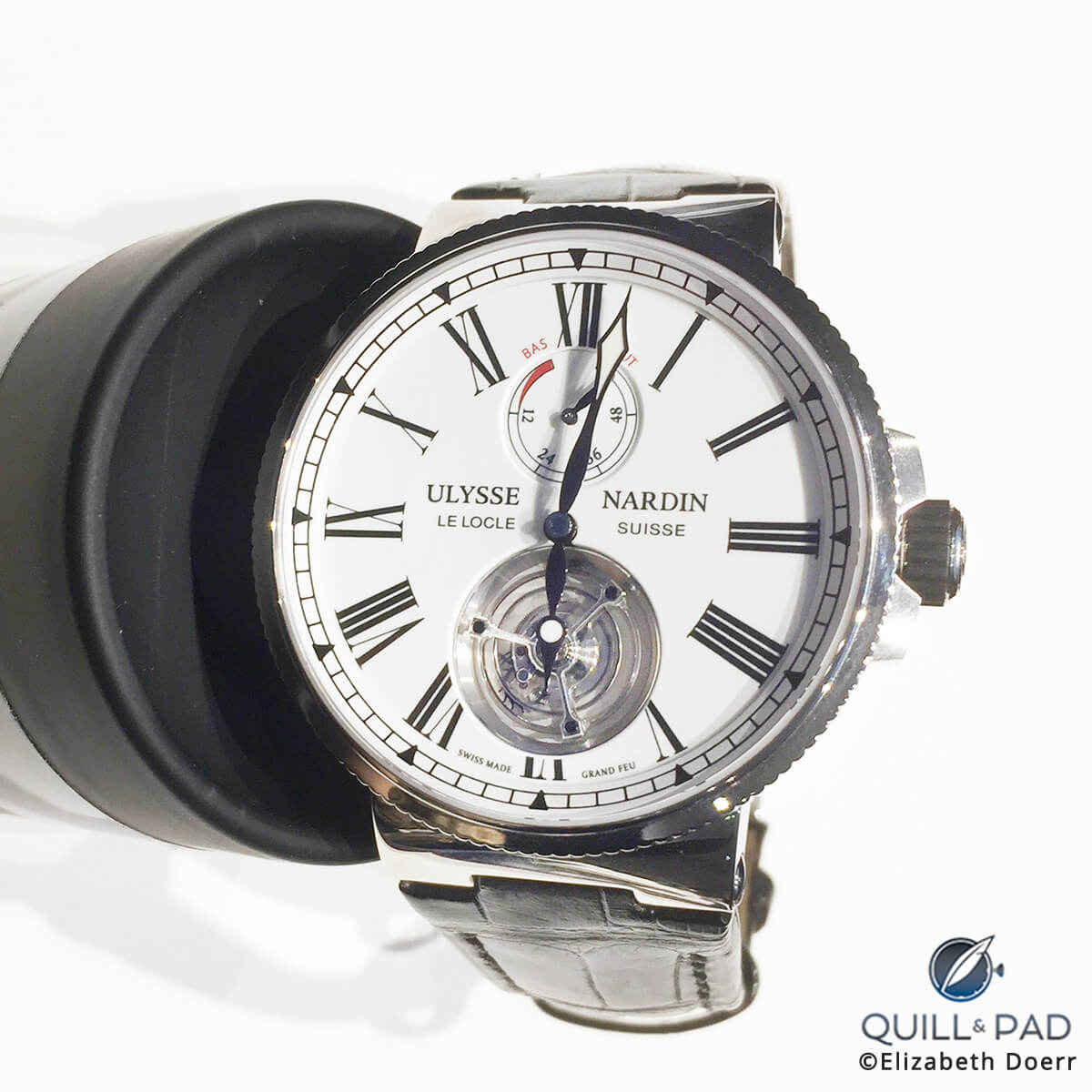
Ulysse Nardin Marine Tourbillon
One of my favorite things about these enamel dials is how the numerals lay on top of the slightly glossy surface. While these types of dials are often found on very classic watches, Ulysse Nardin makes another clever move, fitting it into a 43 mm stainless steel case.
Proportion-wise, this watch is right on the money.
Angelus U40 Racing Tourbillon Skeleton
Recently I was asked to babysit an Angelus U40 Racing Tourbillon Skeleton. While I am not going to repeat the entire review I wrote, it was incredible to see what a tourbillon watch from a small brand like Angelus has to offer. The flying tourbillon is, of course, the most captivating part of the watch, but it is combined with a perfectly finished skeleton movement.
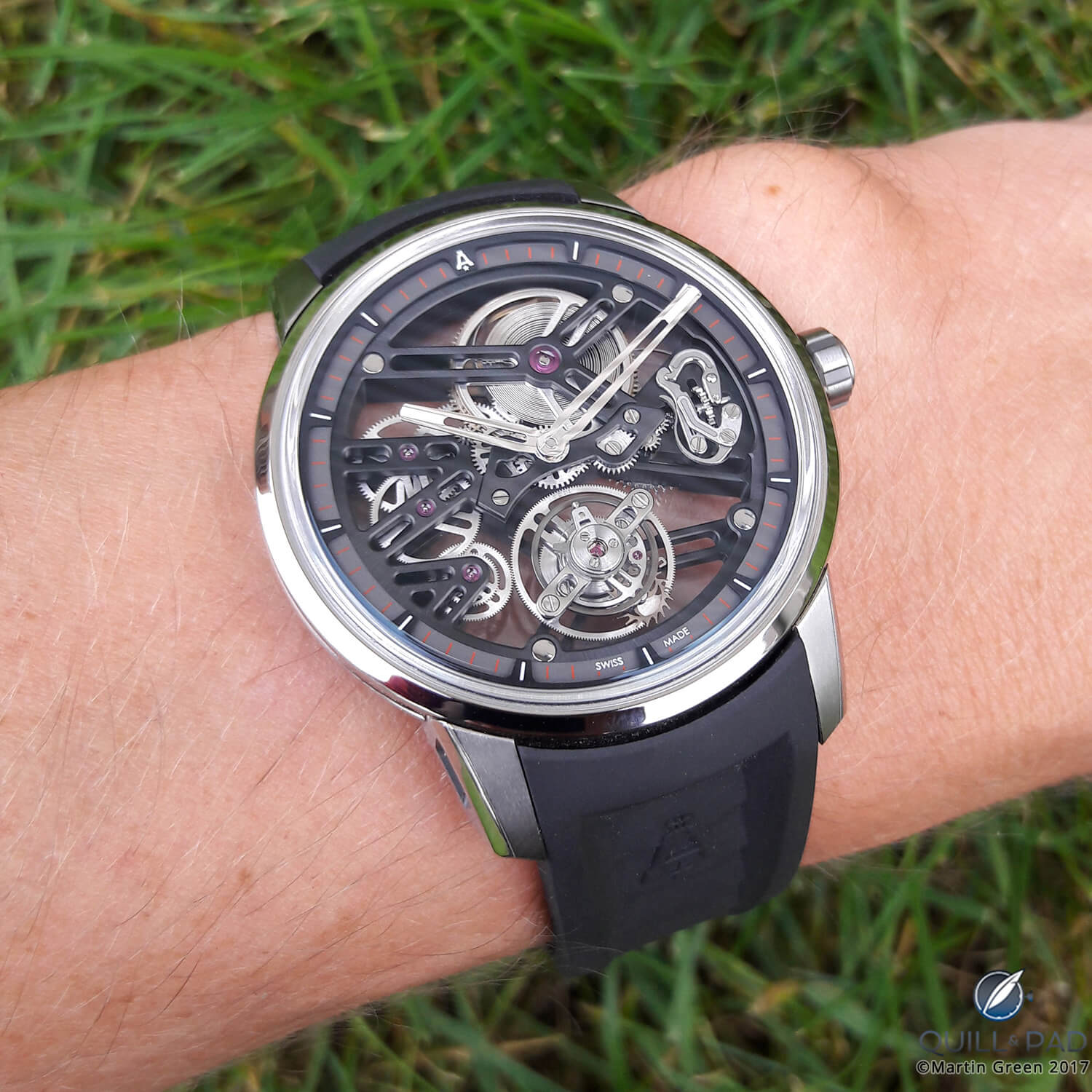
Angelus U40 Racing Tourbillon Skeleton on the wrist
While this is the first Angelus that is not part of a limited edition, the brand is so small that it will only produce a handful of them each year. In short, you are getting the same quality, if not more, than tourbillon watches that retail at a much higher price point offer. And this Angelus costs only $28,750.
Leave it to Biver: TAG Heuer Carrera Heuer-02T
Jean-Claude Biver, LVMH’s watch division head, CEO of TAG Heuer, and chairman of the board of Hublot, is no stranger to making waves in the world of watches. But when he introduced the TAG Heuer Carrera Heuer-02T, this wave was more like a tsunami.
While a manufacture movement featuring a chronograph combined with a flying tourbillon is enough to get the blood of any watch connoisseur pumping, it was the price that knocked this one out of the ballpark.
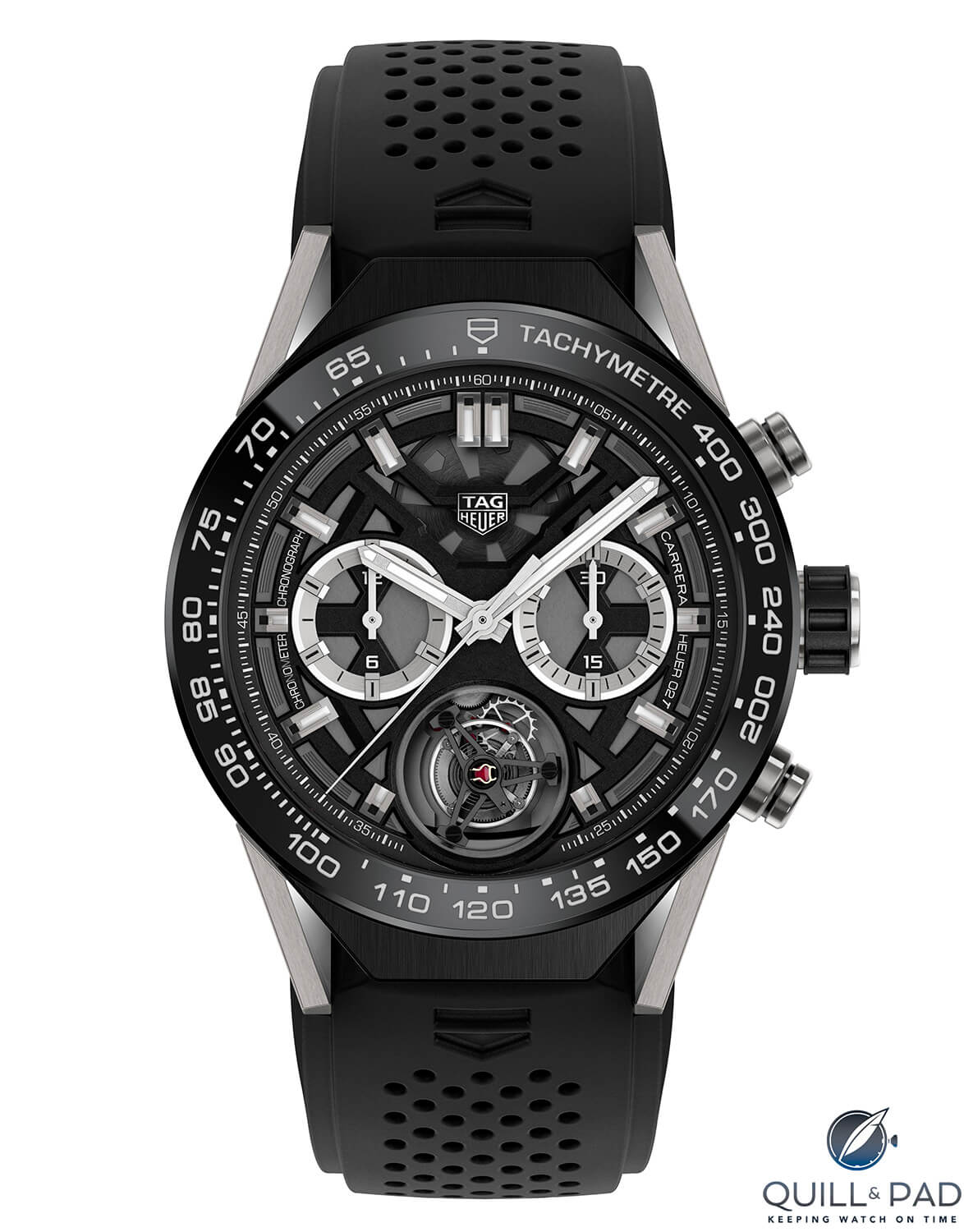
TAG Heuer Carrera Heuer-02T tourbillon chronograph
For $15,950 it was offered at an unprecedented price point for a Swiss made tourbillon; needless to say this was a bold move by TAG Heuer. The first question many had was how many corners the brand had to cut to make this happen?
The answer is none. Despite its price point, the TAG Heuer Carrera Heuer-02T combines good design with a refined finish, generous power reserve, and is even officially chronometer certified.
TAG Heuer also offers its tourbillon chronograph as a luxury module for the Connected 45 watch. This allows owners to swap from smartwatch to mechanical complication in seconds, uniting two ends of the horological spectrum in a single concept.
The future of the affordable Swiss tourbillon
With these “entry-level” tourbillons even consumers who don’t need to be price conscious might scratch their heads and wonder why they would spend more. Some industry insiders believe that TAG Heuer went too low with this price.
The bottom line is indeed the bottom line: at a time when it is more challenging than ever to sell high-end mechanical watches including a well-made tourbillon, a humbler price tag may not only draw attention to a brand but also attract buyers.
It wouldn’t surprise me if more brands started to follow suit.
But that does beg the question as to where that will leave higher priced tourbillons?
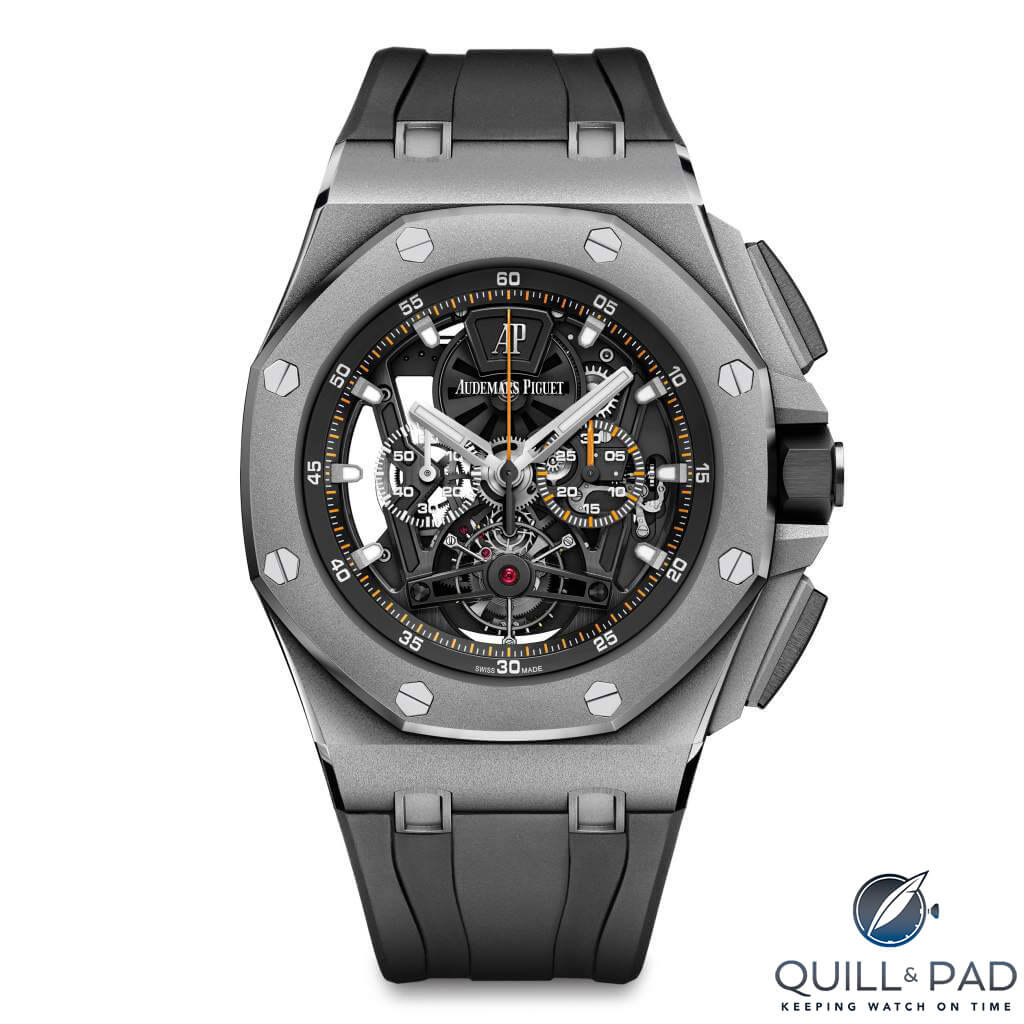
A less-than-discreet Audemars Piguet Royal Oak Offshore Tourbillon Chronograph
And the answer is: exactly where they are now because the prestige of an Audemars Piguet Royal Oak Tourbillon or a discreet example made by Patek Philippe will still outshine the more affordable competition for enough people.
Quick Facts Angelus U40 Racing Tourbillon Skeleton
Case: 42 x 10 mm, ADLC-coated titanium
Movement: manually wound skeletonized Caliber A-300 with one-minute flying tourbillon; 60-hour power reserve; 28,800 vph/4 Hz frequency
Functions: hours, minutes
Price: $28,750
Quick Facts Ulysse Nardin Marine Tourbillon
Case: 43 mm, stainless steel, screw-down rubber-coated security crown with crown guards
Dial: grand feu (high-fire oven) enamel by Donzé Cadrans
Movement: automatic Caliber UN-128 with flying one-minute tourbillon and silicon spring and escapement technology; 60-hour power reserve; officially C.O.S.C. certified
Functions: hours, minutes, seconds; power reserve indication
Price: $28,000 / 28,000 Swiss francs / €28,000
Quick Facts TAG Heuer Carrera Heuer-02T
Case: 45 mm, titanium
Movement: automatic Caliber Heuer-02T with one-minute tourbillon; modular, titanium movement, 28,800 vph/4 Hz frequency; officially C.O.S.C. certified
Functions: hours, minutes
Price: $15,950
Trackbacks & Pingbacks
-
[…] You might also enjoy The Enticing Qualities Of “Entry-Level” Tourbillons. […]
Leave a Reply
Want to join the discussion?Feel free to contribute!








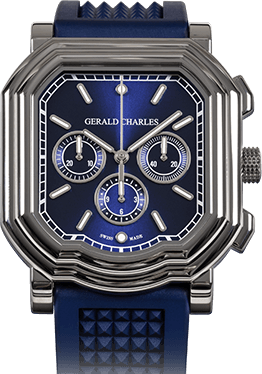
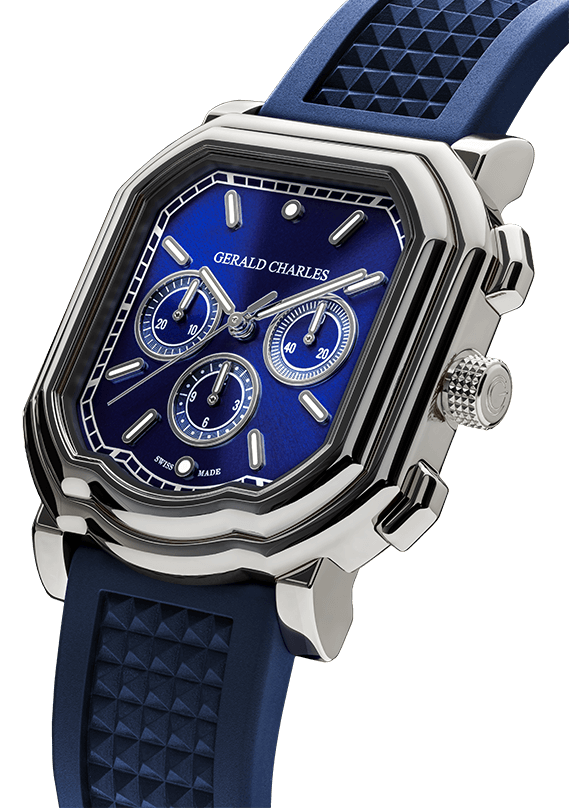

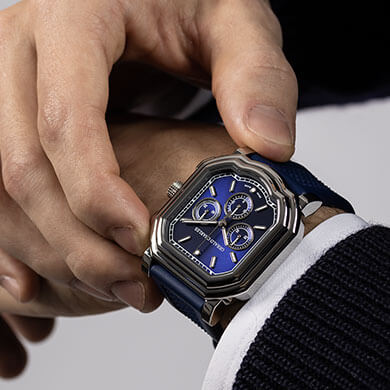
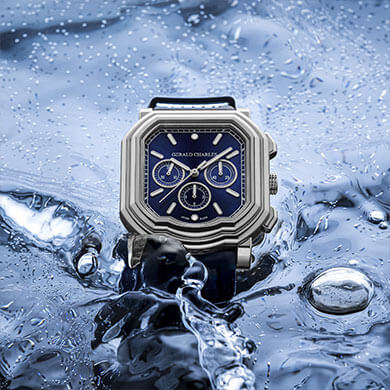

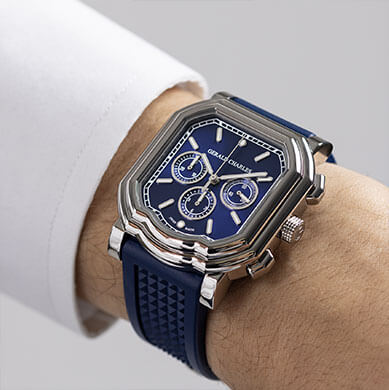



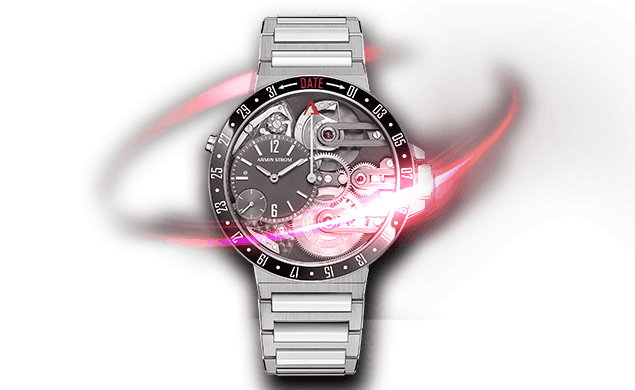
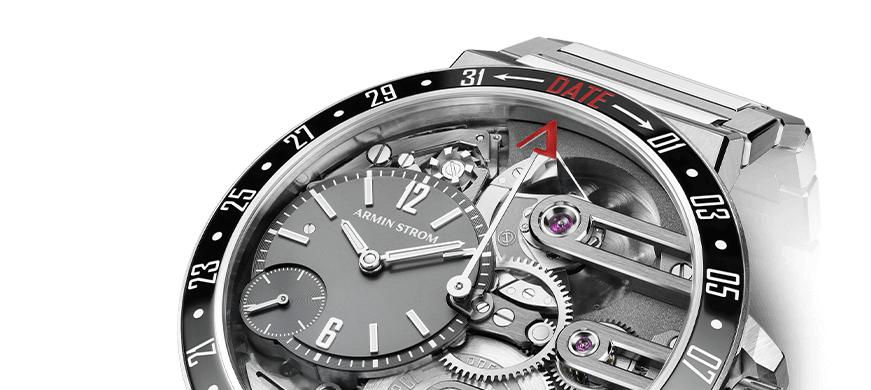
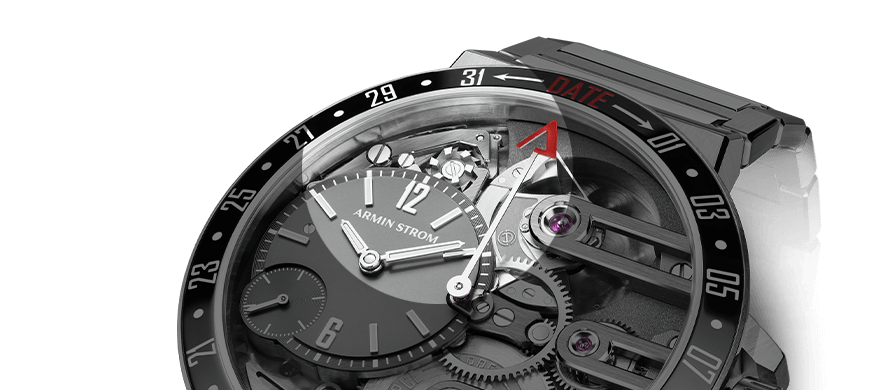


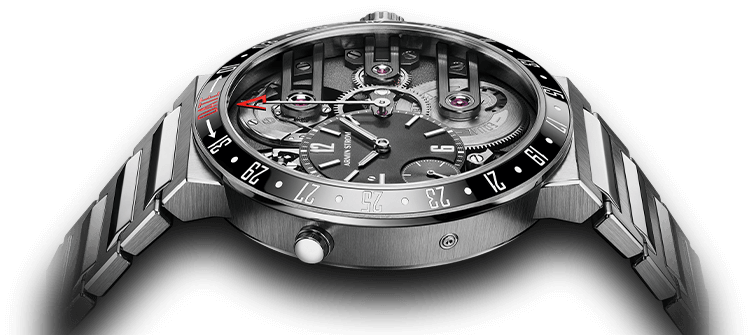
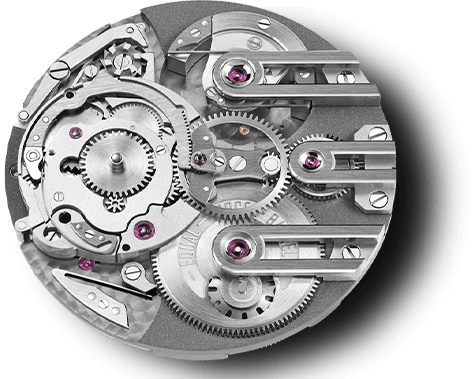

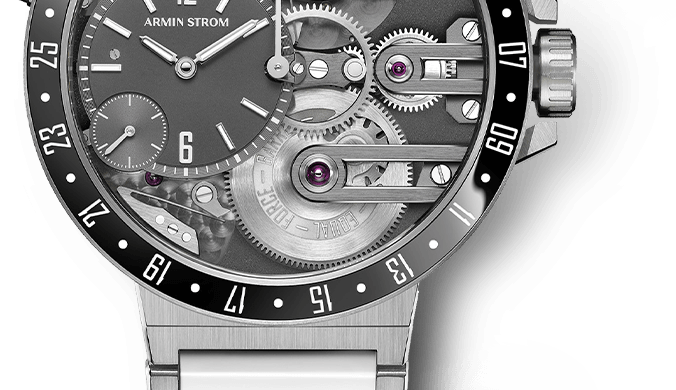
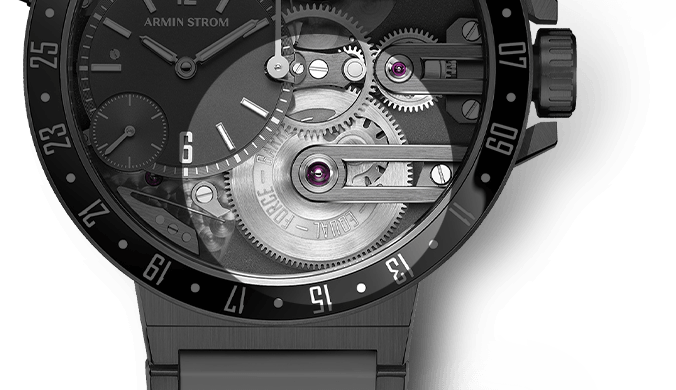


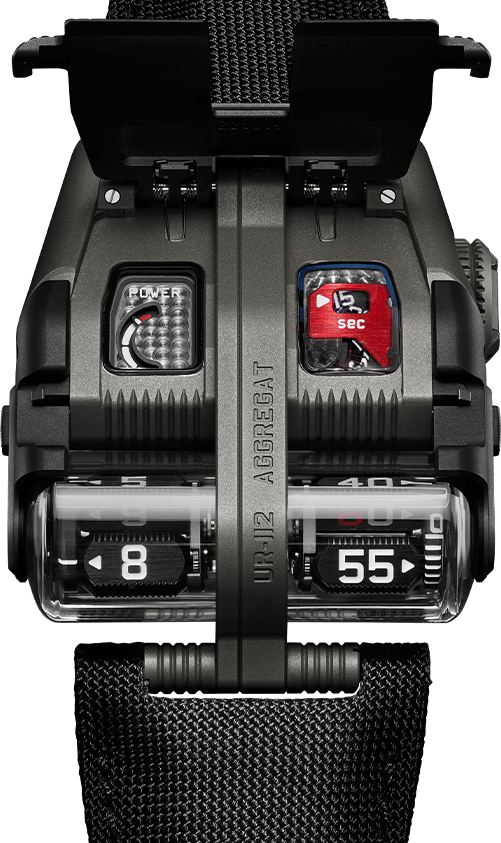

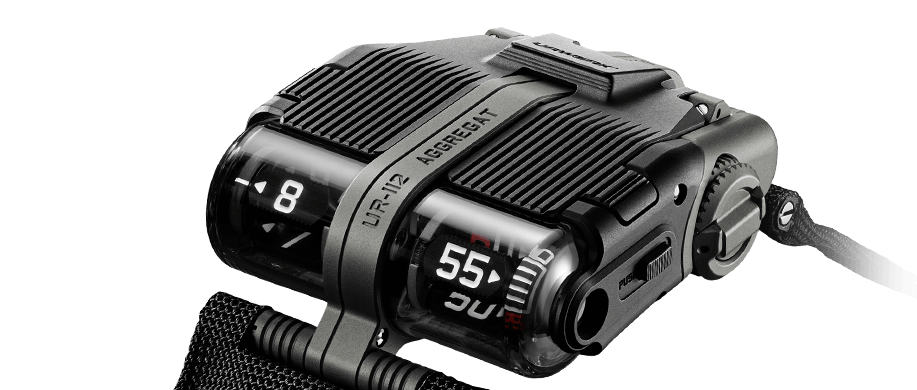
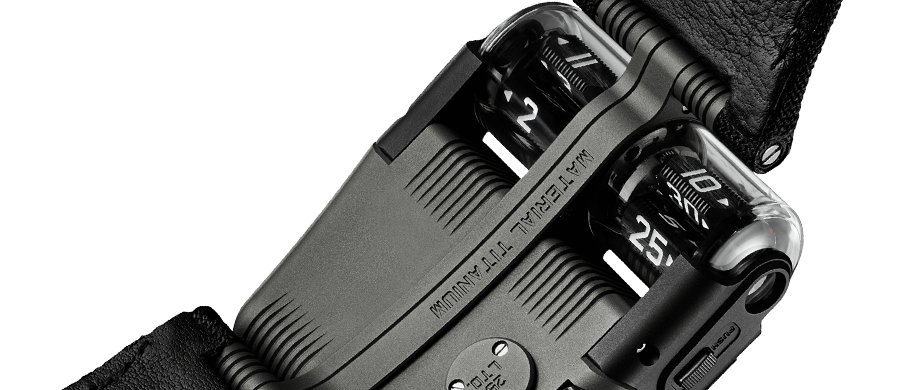
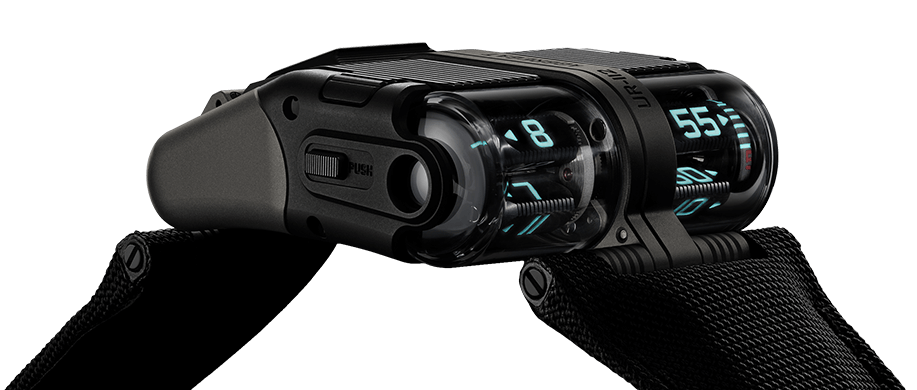


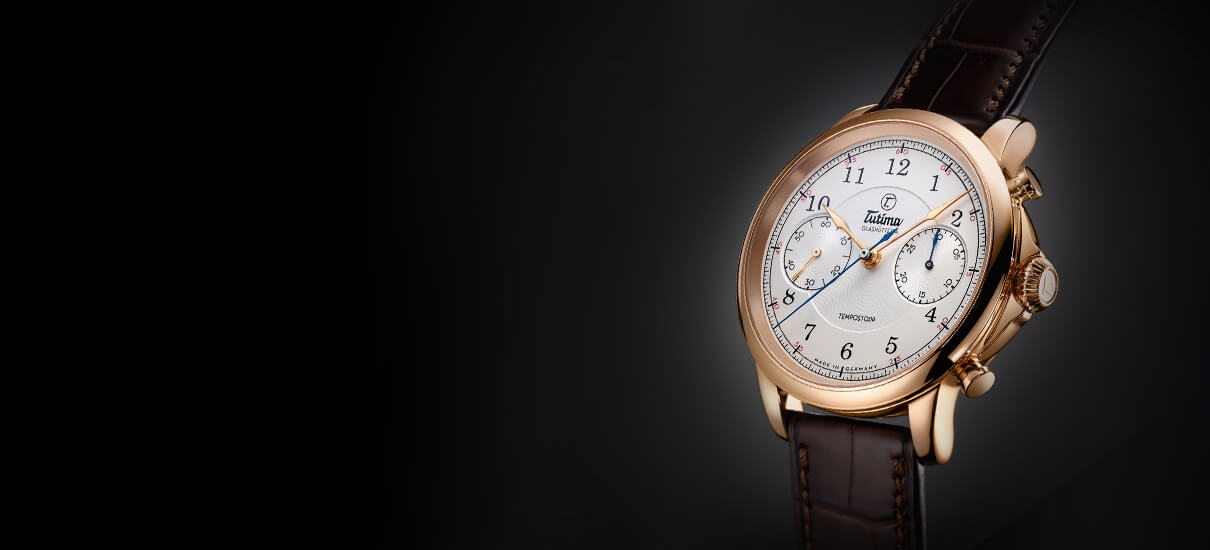

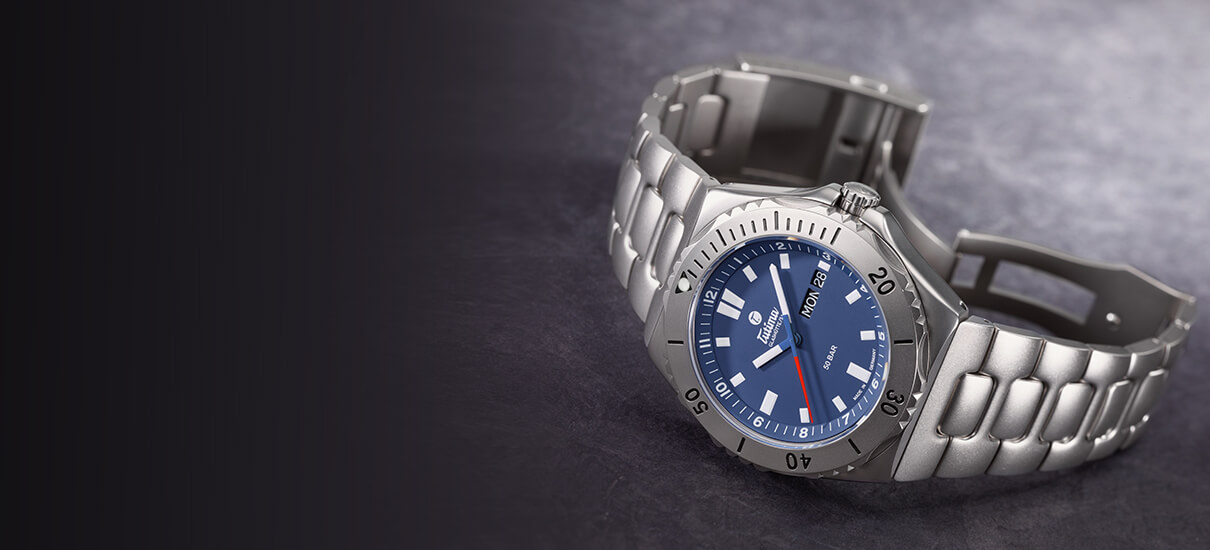

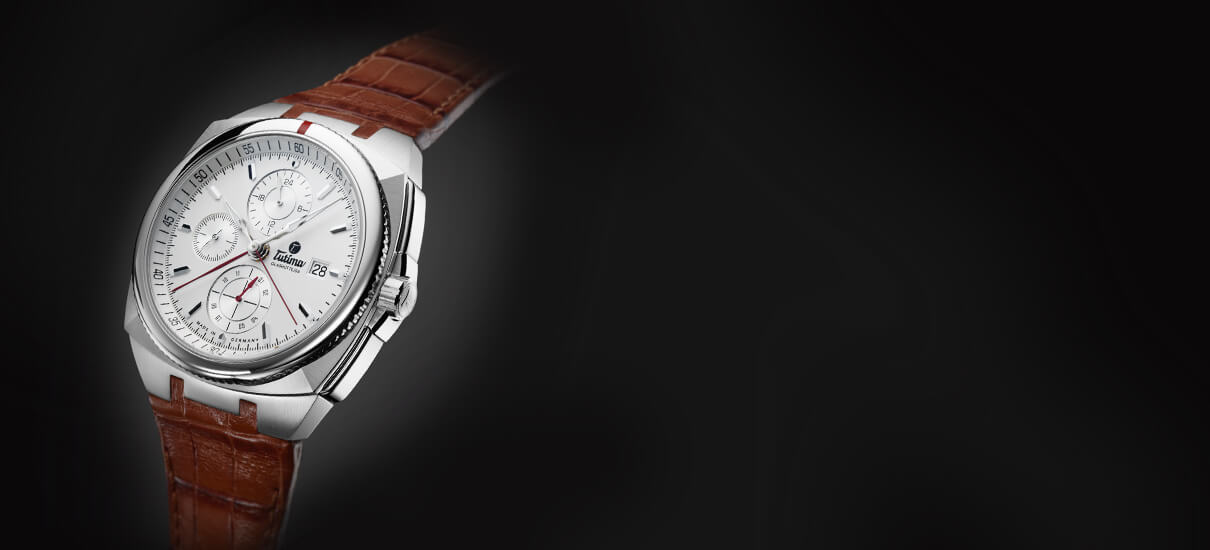

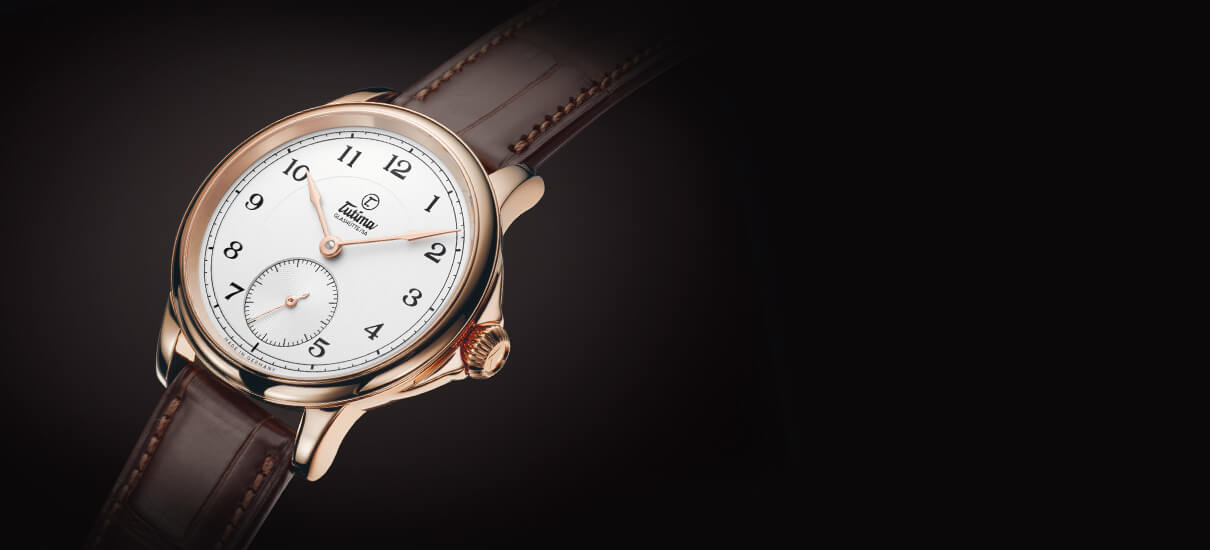

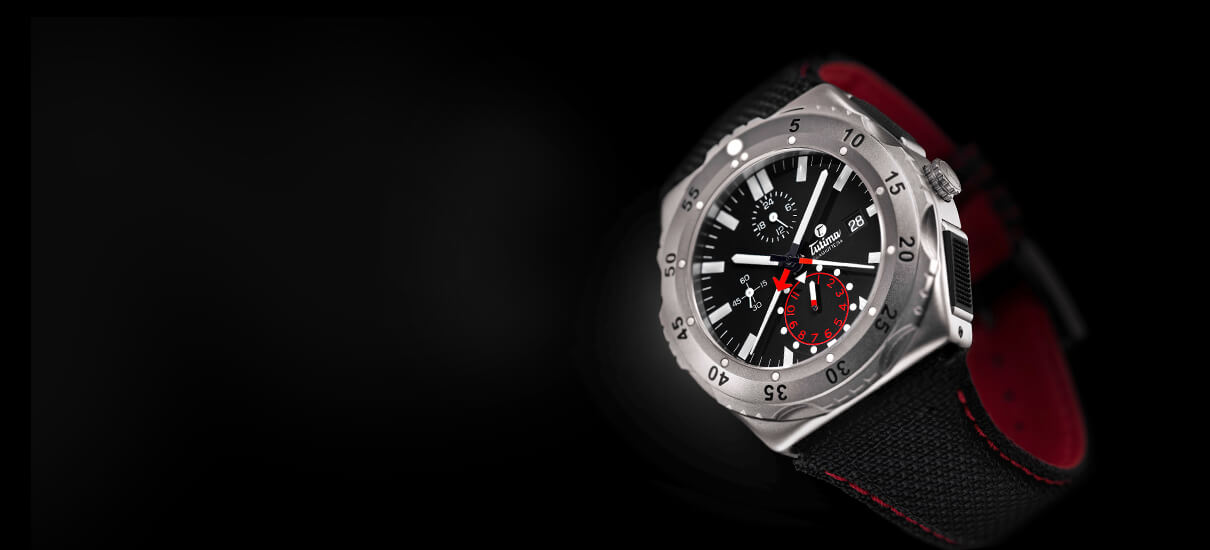

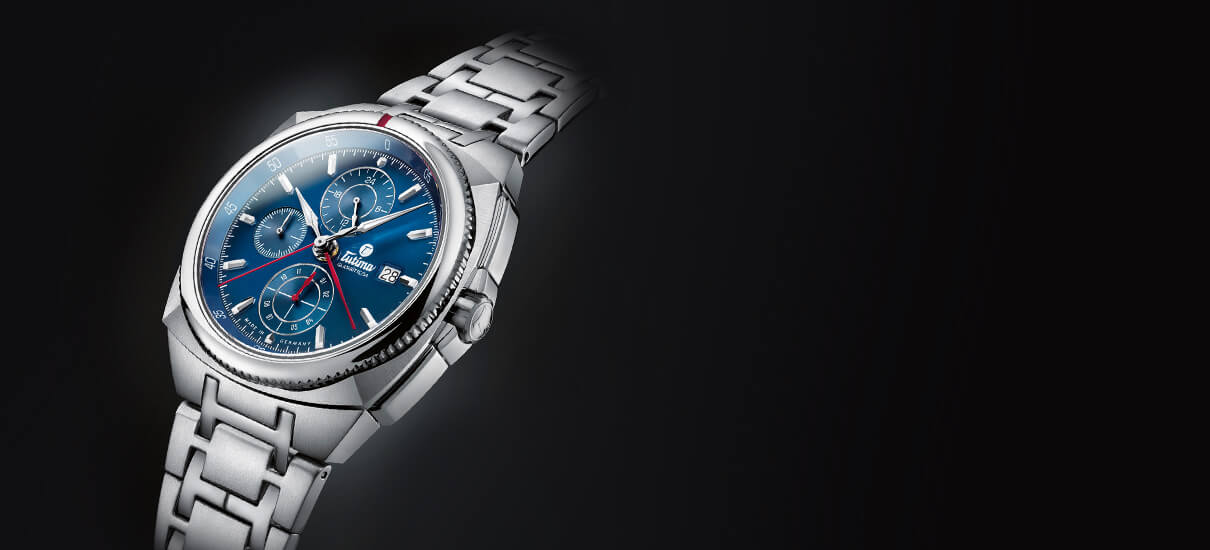

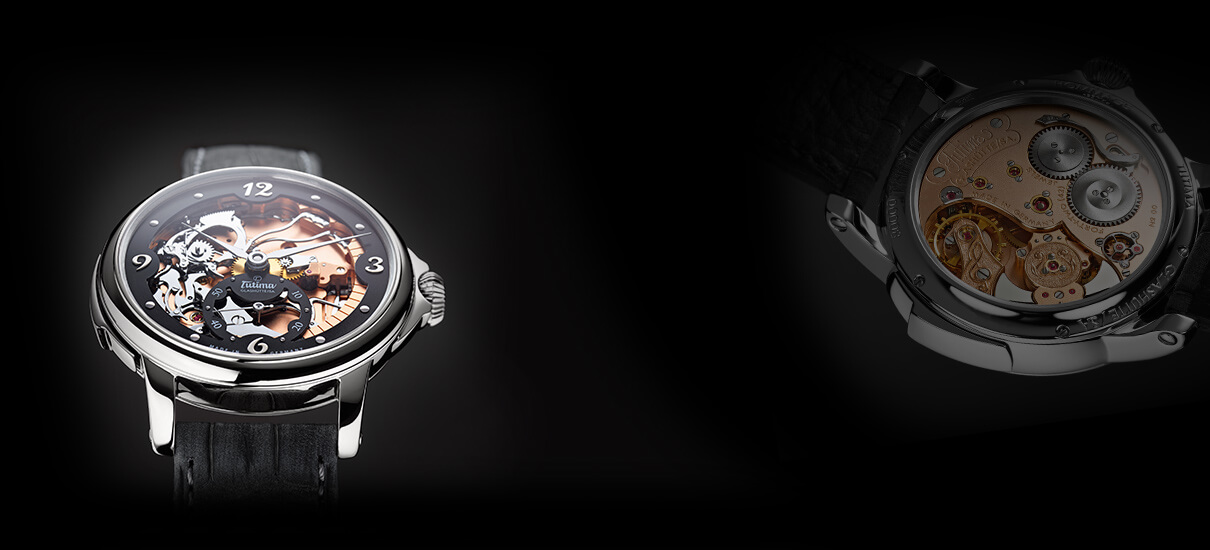



The trouble is that they now seem rather passé. I think I shall wait for a cheap multi-axis tourbillon (by which time – if that should ever arrive – even they will probably seem passé, and I shall be rolling in my grave)!